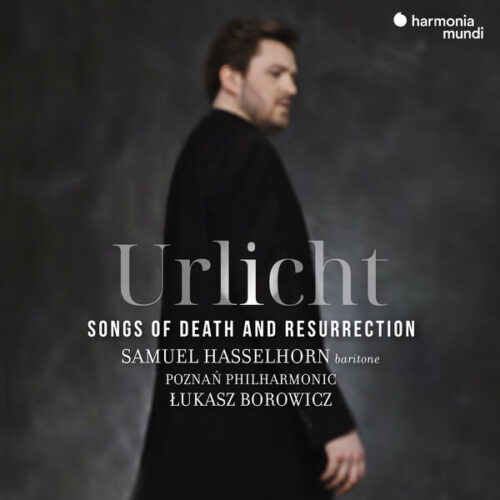Samuel Hasselhorn is a German baritone born in Göttingen and winner of the 2018 Queen Elisabeth International Music Competition of Belgium. He’s a rising star in operatic singing, as this hugely successful album, Urlicht – Songs of Death and Resurrection, proves beyond doubt.
First, a magnificent program of well-known and lesser-known masterpieces of German Post-Romanticism. And, above all, Hasselhorn himself, masterly in the beauty of a perfectly balanced instrument, beautifully cushioned in the lows and easy in the highs. And then there’s the diction and embodied playing that do justice to the texts. Hasselhorn bites into the consonants (those rrrrolling of ‘’Rs’’ in Mahler’s Revelge!), and becomes the vehicle for powerful, sincere and natural emotions in each of these melancholy Lieder, often clouded by the idea of mourning, but radiant, all the same, with a penetrating light that vibrates through every particle of sound space. If this sounds contradictory, it is, for the holistic reality of this music is that it is this and that, all at once. It is totality: emotion, spirituality, intellect and transcendence, united in a whole. Hasselhorn and the Poznan Orchestra do it absolute justice, the orchestra resplendent with chromatic subtleties. In so doing, we are drawn in, enveloped by this poignant beauty, into all the subtlest folds of its multiple dimensions. Hasselhorn is particularly outstanding in his feverishly realistic characterization of the worlds evoked. One of the best examples is Pfitzner’s Herr Oluf, with its striking contrasts in character and atmosphere, ideally mastered by the 34-year-old baritone. Other highlights include Mahler’s sublime Urlicht, quite simply magical, and Zemlinsky’s subjugating Der alte garten.
The new Christian Gerhaher?
























